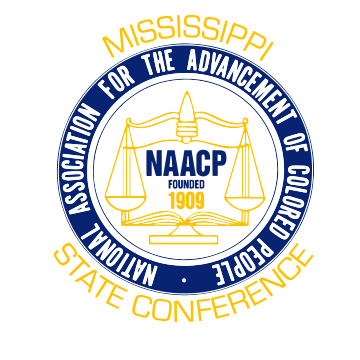National NAACP Releases Charter School Report
September 13, 2017 – Last year, the NAACP called for a moratorium on U.S. charter schools, arguing that the charter school dynamic allowed greedy companies to siphon valuable education money away from schools while leaving their own students no better educated than those in traditional public schools. In a move that alienated it from many charter school advocates, the organization then demanded additional steps to ensure that traditional public school districts are not financially harmed by the spread of tax-hungry charters, which always tap into limited educational funds.
This year, the NAACP stuck to its guns on the moratorium, but added a more refined approach to charter development with the release of the report “Quality Education for Us All.” The document is the result of an NAACP task force that toured the nation after the organization’s 2016 moratorium announcement. The task force held public hearings and took commentary from both charter school opponents and supporters in Detroit, Memphis, Orlando, Los Angeles, New York, and New Orleans, among other cities.
“We have concluded that while there are some good charter schools in our country, there are some problems with the operations of some charter schools that truly require attention,” said task force chairman Da’Quan Love, who is himself a charter school administrator.
The report outlined several nagging problems evolving from the charter school arrangement, including charter schools’ ability to cherry-pick top-performing students, while tossing low-performing students back into the public school system. Clarence Sprowler, a former charter school parent in New York City, shared with the task force how his son got accepted into Harlem Success Academy, but was soon drummed out due to his disabilities.
“Within his first day of school, I was told that he was unfocused and he needed to be disciplined. … [W]ithin days, people were coming into the classroom. They didn’t identify themselves. They were sitting in the back and they had papers and pads and they immediately, systematically, with these systems in place, identified children that they knew were going to be problematic and my son was among them, along with four other kids. Within three days, they had placed them in the back of the class in a table together and one by one, as every day went by, one of those kids went missing and they were gone. I was the hold-out and I only lasted 12 days … I could not understand how a school that claimed to be public could come to me and say, “Listen. Something is wrong with your son. You got to go.”
NAACP task force member James Gallman pointed out that “not every child that applies to a charter school will be accepted, and not everyone can stay.”
Many of the high-performing charter schools have entrance requirements, or they tend to counsel out students or suspend and later expel some of the most vulnerable students. Some critics add that weeding out or picking and choosing students is actually the only advantage charter schools have elevating their test scores above those of traditional public schools. Three new charter schools in Jackson, in the absence of overt cherry-picking methods, appear to be struggling with test grades. The state’s three charter schools, all in Jackson, continue to show results below state averages in recent standardized math tests, and in some cases below the overall average of the Jackson Public School District they inhabit.
Gallman also pointed out that “the public education money that followed the students to their charter school mostly stays at the charter school” even after students leave, flunk-out, or are otherwise removed. Gallman’s description echoes a local grievance that public school advocates launched against local charter schools in Jackson. A document compiled by Jackson Public School staff suggests that of 206 students who opted for charter school enrollment within the last year, a total of 56 students filed slowly back into JPS, for unknown reasons. The money, however, had not yet followed them back to their public school.
The Southern Poverty Law Center, representing a group of Jackson residents, filed suit earlier this year, challenging the constitutionality of ad velorem tax money following students to charter schools. Parents argue that charter schools violate the state constitution by forcing cash-strapped school districts to share meager property tax collections with charter schools that they neither supervise nor control. The suit explains that the funding provisions of the Charter Schools Act of 2013 cost JPS schoolchildren “more than $1.85 million in state per-pupil funding and ad valorem tax revenue in the 2015-2016 school year alone.”
JPS sent the three active charter schools around $1.38 million during the 2016-2017 school year, which is comparable to JPS building three new schools without any financial planning. In fact, the last time JPS actually did build three new schools of its own, city voters had to first approve a historic $150 million bond on the 2006 November ballot to pay for them. So far, there is no bond buttressing the new charter schools.
All that money needs more transparency, according to the NAACP report. Some families of students in charter schools claimed in testimony they do not always know how to hold their charter schools to account. Teresa Jones, former chair of the Shelby County School Board, explained during the Memphis hearing that parents “do not feel they have a public place to go” with grievances.
Jones told the NAACP task force that she had spoken with charter operators about the problem and had been assured that there are public meetings for complaints.
“But when I ask the question how many parents attend, I’m told maybe one. I get complaints from citizens who feel that they’re not part of that process and that their input or wishes, in terms of how the school is run, is not being considered,” Jones said.
The report took particular issue with “for-profit” companies running charter schools. Thirteen percent of U.S. charter schools are run by for-profit companies, to whom the nonprofit charter schools pay substantial fees. The industry is ripe for corruption, as indicated in Michigan where two insiders from one charter company bought a plot of land and then sold it to their own school for $50,000 more and pocketed the difference. There is also news in Pennsylvania of two charter school executives who swiped $860,000 from their own school while the school bounced teacher paychecks. In Minnesota, a charter school executive embezzled $1.3 million over five years as his school ran out of supplies.
The report urged more oversight and the outright elimination of for-profit run charter schools. Other report recommendations include: more equitable and adequate funding for schools serving minority students; school finance reform; investment in low-performing schools; and a rigorous charter school authorizing and renewal process.



